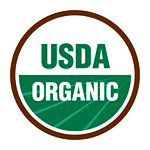Dear Umbra,
I’m trying to convince my sister that there is a difference between all-natural and organic products, and she doesn’t think there is. I’m pretty sure there is a difference, I just don’t know what it is. I look at the ingredients of some of the food she buys that she says are “natural” and I wonder how these products are able to claim that! What are the qualifications for something to be labeled all-natural, and how are these products different from organics?
Julie
Yorkville, Ill.
Dearest Julie,
You are correct, there is a difference. To speak broadly and bluntly, “natural” is meaningless and “organic” is meaningful. Tell your sister that although you won the argument, it’s actually good news for her. She can stop paying more for “natural” products and change over to certified organic products that have substantiated environmental and health benefits. We try to have everyone win.

For a confused shopper, supermarket choices
can feel like uncharted wilderness.
Photo: iStockphoto
Organic, as many of you know, is a food certification system. An organic label on food indicates that the producer has passed a regular inspection of its facilities, ingredients, and practices. The producer pays a fee for the certification, keeps thorough records, and can use the label by following clear guidelines. The organic label is now overseen by the United States Department of Agriculture; if you like you can visit its website and see the details in their complete glory. Animals, soil, and plants must be treated in certain ways; food can only be processed with certain methods; only allowed ingredients can be added.
Organic farming, though imperfect, is environmentally superior to conventional, large-scale, chemical-dependent agriculture. On top of that, studies are coming out all the time showing that organic is better for you, nutrition-wise.
On the other hand, “natural” or “all-natural” is not a food certification system. It is a label claim that in most cases has no oversight. The Food Safety and Inspection Service gives guidelines for the use of the word “natural” on meat and poultry products — basically the products cannot contain artificial flavor, coloring, or preservatives and cannot be more than minimally processed. The “natural” label also “must explain the use of the term natural (such as … minimally processed).” The FSIS guideline translates: this food is somewhat similar to a home kitchen meat preparation. That sounds OK. Trouble is, the FSIS doesn’t necessarily check these claims or certify the producers.

Additionally, from an environmental perspective it’s hard to see much benefit from even an accurate “natural” claim. “Natural” does not mean the animal was raised out in the natural world, or that it was fed foods found in nature. It only means you are probably familiar with how it was processed.
In non-meat/poultry products, natural is only a term of art to get us to buy the product — witness the brouhaha over 7UP’s all-natural claims. Many companies are simply telling us what we want to hear. I might be slightly more inclined to give credence to a “natural” claim if there were also a substantiating definition of natural, such as “natural peaches, hand-picked from the special tree by our friend Lucy” — but that’s still nowhere near as comforting as official certification.
So when you shop, look for the organic label and other specific certification systems or label claims that have not only emotional resonance, but details. We can talk about other labels in future; I’m out of room for now.
Stickily,
Umbra
